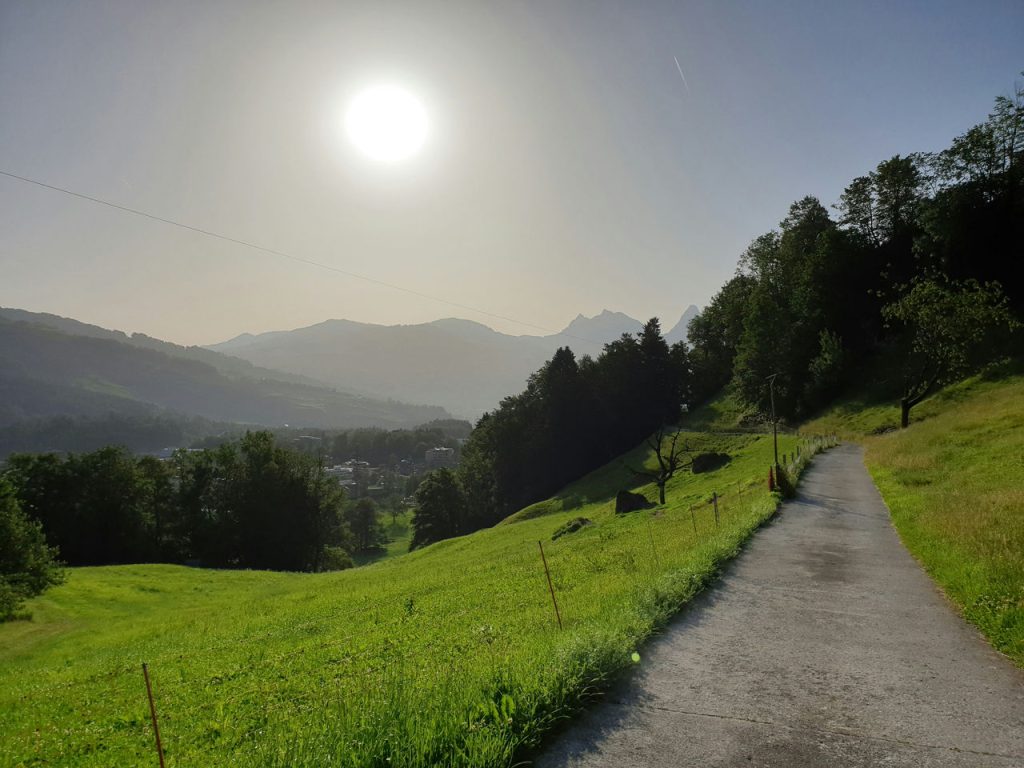The ConectArt-e project wants to create a network between the agents of the territory and promote socioeconomic innovation in rural areas through art.
The UOC, the Association of Taula del Sénia, Xarxaprod and the Universitat Jaume I, among many other organizations, come together to strengthen and empower the inhabitants of the territory through cultural activities.

The Sénia territori is a rural enclave in the area of the Sénia River, a natural space that links Catalonia and Valencia. The area, which includes twenty-seven municipalities, is one of the focuses of the ConectArt-e project, which seeks to create a symbiosis between cultural and artistic creation and regenerative tourism. The project, subsidized by the Ministry for the Ecological Transition and the Demographic Challenge, wants to contribute to the dynamism of this area through the connection between tourism and cultural and artistic activities.
Several organizations linked to the territory participate in the project, such as the Mancomunitat de la Taula del Sénia, the Network of Production and Creation Spaces of Catalonia (Xarxaprod), the Universitat Jaume I and the Open University of Catalonia (UOC), through the UOC Rural Network and the UOC delegation in the Ebro Lands, among many other organizations.
On April 11, the first work session was held at the SmartCentre in Santa Bárbara (Tarragona) with the participation of several agents and organizations, who carried out a co-creation activity to discuss about the project’s challenges and opportunities. Among the participants there were delegates from the Pauma Museum of Mas de Barberans; the Musical Days at the Ermita de la Piedad de Ulldecona; Explora Maestrat, from Peñíscola; the town councils of Sant Jordi, Godall, Freginals and Santa Bárbara; the House of the Artist in La Sénia; the Terres de l’Ebre’s Tourist Office; the Col·lectiu Cultura Terres de l’Ebre; the Montsià Regional Council; the Tortosa School of Art and Culture; and representatives from companies such as Conficon, Viatges Némon or Produccions Cultura Viva.
The next step will be to analyze the ideas shared during the meeting so a new co-creation day will take place soon with the aim of designing a “toolbox” to launch activities related to culture, art and regenerative tourism in the area. The objective is to regenerate the territory on the basis of sustainability and citizen empowerment.
A tourism model that seeks to empower the community
Teresa Adell, manager of the Mancomunitat de la Taula del Sénia, values the fact that “different perspectives and visions coincide in the need to create spaces for exchange and collaboration networks in order to promote local culture, artistic creation and the development of “a tourism model that will directly benefit the local population”. The way to achieve this development is by generating a network of agents who will connect artistic, cultural and tourist activities with the aim of creating a regenerative tourism itinerary between several municipalities in the Sénia territory. The project wants to raise awareness about the heritage and values of the rural world, in addition to strengthening local culture and boosting socioeconomic innovation by promoting new narratives about the contemporary rural world.
“The UOC’s commitment to the territory is manifested in the contribution of its knowledge and the promotion of a collaboration network between cultural, artistic and tourist agents in order to obtain a tourist product that will serve as a unifier of these crossing lands”, explains Teresa Nielles, UOC delegate in the Terres de l’Ebre.
In addition to that, the academic coordinator of the UOC Rural Network, Soledad Morales, states that “ConectArt-e is a good expression of the type of knowledge that we want to promote from the UOC Rural Network. Its objective is to contribute positively to the development of a rural area, the Taula del Sénia, based on regenerative tourism, with a clear focus on generating beneficial processes for the local population and the territory that hosts it, with culture and artistic creation as the main axes”.
At the same time, Laia Casanova, manager of Xarxaprod, a network of creation and production spaces in Catalonia, believes that “the territory has a lot of potential as well as a great wealth of natural parks and historical heritage, both material and intangible”. However, in Lara’s opinion there is “a general lack of self-esteem and a feeling of abandonment by the administration”.
Thanks to the ConectArt-e project, this network that links culture, art and regenerative tourism will contribute to the socioeconomic dynamism of the area and the creation of new narratives around rurality and its values.